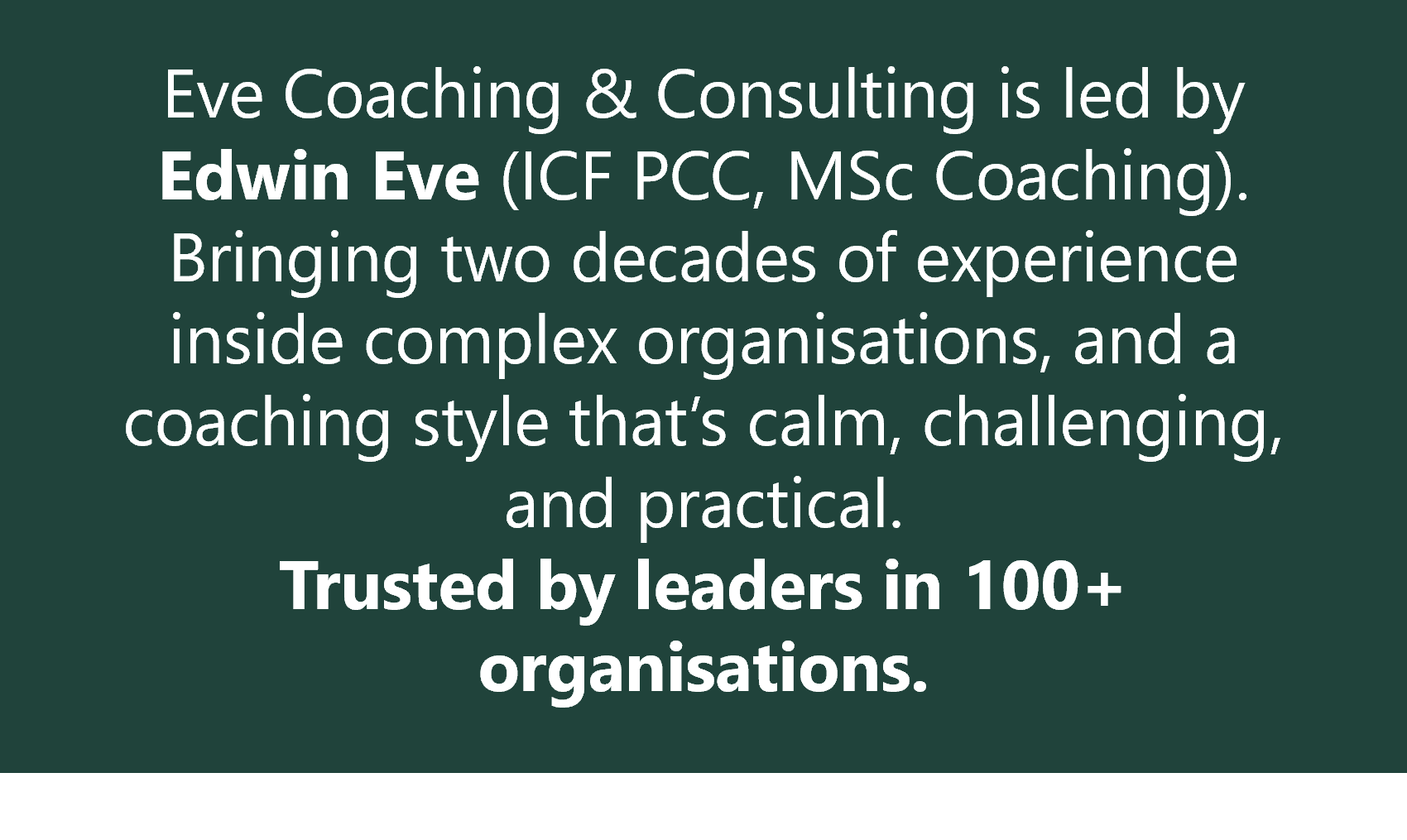The Psychology of Purpose: Why We Search for Meaning
Why do people with impressive careers, comfortable lives, and long to-do lists still feel a quiet gap between achievement and fulfilment? Psychology points to one answer: purpose. Purpose isn’t a single goal or five-year plan. It’s a thread that links who you are, what you value, and how you want to contribute - across seasons of life.
Living with purpose supports well-being, motivation, and resilience. It clarifies decisions when trade-offs are messy. It steadies us in uncertainty. This piece explores what psychology says about purpose, how it strengthens identity and relationships, and practical ways to begin (or begin again).
What does psychology say about purpose?
In psychology, purpose is commonly defined as a stable, long-term intention to accomplish something personally meaningful that also reaches beyond the self (Damon, Menon & Bronk, 2003). Viktor Frankl’s work highlighted the human need for meaning, even in extreme adversity, and catalysed decades of research into how purpose guides cognition, emotion, and behaviour. .
Purpose works like a north star: it organises choices, sustains effort, and connects private values to public contribution. People with a clear sense of purpose tend to report higher life satisfaction, more consistent motivation, and better psychological health.
Therefore, one’s purpose is a very individual perspective, one example being….
The purpose of life is not to be happy. It is to be useful, to be honorable, to be compassionate, to have it make some difference that you have lived and lived well.
- Ralph Waldo Emerson
Eight psychological lenses on purpose (and how they help)
Intrinsic Motivation:
Purposeful pursuits feel worthwhile in their own right. When actions align with your values and interests, motivation is self-sustaining; satisfaction comes from the work and its meaning, not just the outcome.
Goal Setting and Achievement:
Meaningful goals translate purpose into plans. Clarity of aim, visible progress, and milestone reflection strengthen commitment - and make it easier to persist through setbacks.
Identity and Self-Concept:
Purpose and identity reinforce each other. Acting in line with what you care about builds a more coherent self-image, higher self-esteem, and a felt sense of connection to yourself and others.
Well-Being and Mental Health:
Purpose anchors eudaimonic well-being — deeper fulfilment rooted in meaning rather than short-term pleasure. Research links purpose with lower stress, anxiety, and depression, and with more sustainable forms of well-being than hedonic highs. Individuals with a strong sense of purpose often experience lower levels of stress, anxiety, and depression, leading to improved mental health outcomes. More specifically this falls into the area of positive psychology, and in particular Eudaimonic well-being which focuses on the creation of meaning and purpose in life. Research suggests that Eudaimonic well-being is a more sustainable form of well-being compared to hedonic (short-term) well-being.
Social Relationships:
Shared purpose strengthens bonds. It attracts people with compatible values, improves collaboration, and adds a “beyond me” dimension that makes relationships feel more significant.
Coping & Resilience:
When life gets difficult, purpose provides orientation. It helps people frame hardship as part of a meaningful path, mobilise constructive coping strategies, and recover more quickly.
Life Transitions and Changes:
During transitions, purpose acts as a stabiliser. It offers direction when roles shift and routines reset, helping decisions stay consistent with what matters most. Purpose can serve as a guiding force during times of uncertainty, providing a stable foundation and direction.
Societal and Global Impact:
Purpose scales from the individual to the collective. When many people act from clear purpose, communities and organisations benefit — through contribution, prosocial behaviour, and cultural momentum.
In essence, purpose seeks to unravel the intricate interplay between human cognition, emotion, behavior, and the pursuit of meaning. It sheds light on how individuals understanding of their purpose shapes their perceptions, motivations, and overall well-being, offering valuable insights into how people can lead more fulfilling and purposeful lives.
“Your purpose in life is to find your purpose and give your whole heart and soul to it.” – Budda
Want more insights? [Subscribe here]
Practical ways to discover (or clarify) your purpose
You don’t need a grand epiphany. Think small experiments + honest reflection:
Reflect on values & strengths - name your top values; map where your strengths have created value for others.
Notice when you’re in flow - track work that absorbs you for positive reasons.
Favour fulfilment over applause - ask what brings lasting satisfaction, not just recognition.
Connect with causes & community - volunteer or join a mission-aligned initiative for 4–6 weeks; treat it as a test. (See our article on the psychological benefits of volunteering)
Consider legacy - if you looked back in 10–20 years, what impact would you want to see?
Practice gratitude & altruism - small, regular acts that align with your values reinforce purpose.
Books to go deeper
The Power of Meaning - Emily Esfahani Smith
Man’s Search for Meaning - Viktor Frankl
The Purpose Effect - Dan Pontefract
The Path Made Clear - Oprah Winfrey
Conclusion: a compass you can carry
Purpose won’t pick your job for you or erase uncertainty. It does make choices clearer, relationships richer, and effort more coherent. It grows with use. If you want structured support - reflection, challenge, and experiments that fit your context coaching can help translate insight into practice.
Next step
If you’re carrying a lot at senior level:
1:1 executive coaching gives you a confidential space to think clearly, deepen self-awareness, make better decisions, and shift patterns that show up under pressure.
If you’d like to explore this with a guide, you can learn more about my coaching approach and book a conversation.
Alternatively….
📖 Need some clarity? Read the FAQ
📚 My Book Reading list on the themes of change
🎥 Watch the Change Video listings
Frequently Asked Questions (FAQ): The Psychology of Purpose
Q. What is “purpose” in psychology?
A stable, long-term intention to pursue something personally meaningful that also contributes beyond the self. It provides direction, coherence, and motivation.
Q. Is purpose the same as passion or goals?
No. Passion is an emotion; goals are milestones. Purpose is the ongoing why that organises which goals you choose and how you pursue them.
Q. How does purpose improve mental health?
It anchors attention on what matters, reduces rumination, and reframes setbacks as part of meaningful effort — linked with higher well-being and lower distress (eudaimonia).
Q. Can purpose change over time?
Yes. Core values often persist, but expressions of purpose evolve with life stage, responsibilities, and opportunities. Treat it as a living commitment.
Q. What if I don’t know my purpose yet?
Start small: identify two values, run one contribution experiment for 4–6 weeks, and reflect. Clarity tends to follow action, not precede it.
Q. How can coaching help?
Coaching creates space to articulate values, test assumptions, and design small experiments. It turns purpose from an idea into behaviours, boundaries, and habits you can sustain.
References
Damon, W., Menon, J., & Bronk, K. C. (2003). The development of purpose during adolescence. Applied Developmental Science, 7, 119-128.Frankl, V. E. (1959). Man's Search for Meaning, trans. Lasch. London: Rider.Pontefract, D., 2016. The purpose effect: Building meaning in yourself, your role and your organization. Elevate Publishing.Smith, E.E., 2017. The power of meaning: Crafting a life that matters. Random House.Winfrey, O., 2019. The path made clear: Discovering your life's direction and purpose. Flatiron Books.











